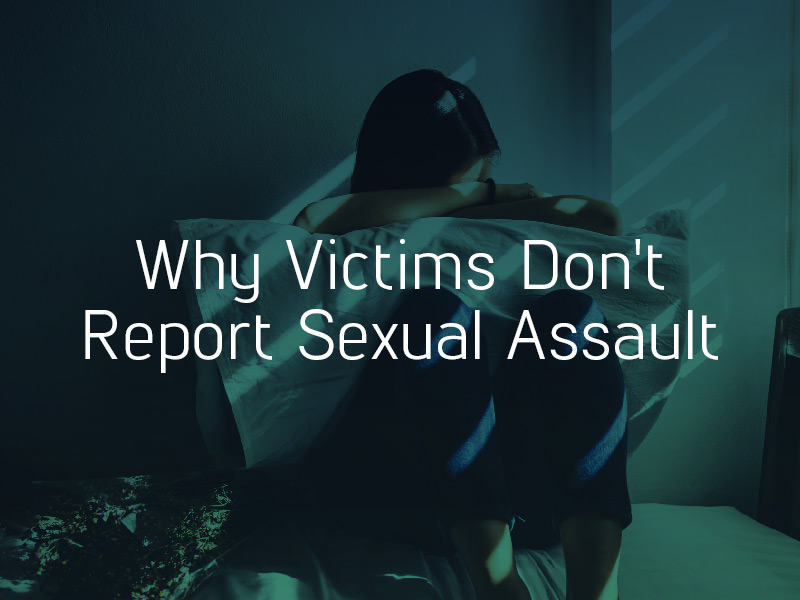Sexual assault is a serious crime that can have a lasting impact on the survivor’s physical and mental health. As a society, we should aim to support survivors in reporting their experiences and seeking justice against the perpetrators of the assault – however, reporting a sexual assault is not an easy experience. Sexual assault is highly underreported across the United States due to several barriers that exist between survivors and justice.
#1: A Survivor May Know the Perpetrator
When many people think about sexual assault or other instances of sexual violence, they often think of stranger rape. However, the majority of people who are survivors of sexual assault actually know their perpetrator in real life. According to the Rape, Abuse, and Incest National Network, approximately 8 out of 10 rapes are perpetrated by someone that the victim knew. Strangers commit only 19.5% of these assaults.
Having this previous relationship can make a survivor less likely to report what happened to him or her. This may be due to community attitudes, fear for the survivor’s own safety, or not wanting the perpetrator to face criminal charges. The Maryland Coalition Against Sexual Assault provides the following statistics on reporting an instance of sexual assault based on the perpetrator.
- Survivors only report 25% of assaults committed by an intimate partner to the police.
- Survivors only report 18% to 40% of assaults committed by a friend or acquaintance to the police.
- Survivors report 46% to 66% of assault committed by a stranger to the police.
#2: A Survivor May Want to Hide the Assault
Sexual assault is a very taboo subject in mainstream society, even as more survivors have come forth with their stories in light of the recent activity, such as the #MeToo movement. Many people may feel shame about what happened to them, and do not want the issue to be public.
Others may fear shame or stigma from friends, family members, or the community at large. In these situations, the survivor may want to keep the assault to him or herself – which could lead to greater emotional harm to him or her later on.
#3: A Survivor May Feel Like the Crime Was Not Serious Enough
Due to the societal beliefs that often surround sexual assault, many survivors refrain from coming forward because they believe that what happened to them was not serious enough to warrant a criminal investigation, or they may not believe it was an act of sexual violence in the first place. It is important to understand that sexual assault can take on many forms – from unwanted touching to many types of forced sexual acts.
Any instance of sexual contact that a perpetrator committed without the survivor’s consent is an act of sexual assault. The consent that the survivor gives must be free and informed – the perpetrator cannot threaten, coerce, or force the survivor into giving consent. In addition, a survivor cannot give consent if he or she is under the influence of drugs and alcohol, asleep, or mentally or physically unable to do so. Any sexual contact that occurs without free or informed consent is an act of sexual violence and is serious enough for a criminal investigation.
#4: A Survivor May Fear the Justice Process
Sometimes, a survivor may not come forward about the assault because he or she believes that there is not enough evidence to convict the perpetrator, or because the justice system may be too complex and lengthy for him or her to enter. While sexual assault cases may involve significant investigation, it is still important to explore pathways to justice. Speaking to an attorney can help a survivor understand the options available to him or her, and what each step of the criminal justice system is.
If you are a survivor of sexual assault, it may seem like reporting the crime is a very difficult and complicated process. However, there are numerous resources available to help you seek justice – and many avenues you can explore to seek criminal and civil penalties against the person responsible. Your attorney can help guide you through each step of the way. If you have not done so already, schedule a consultation with a sexual assault lawyer to discuss your case.

